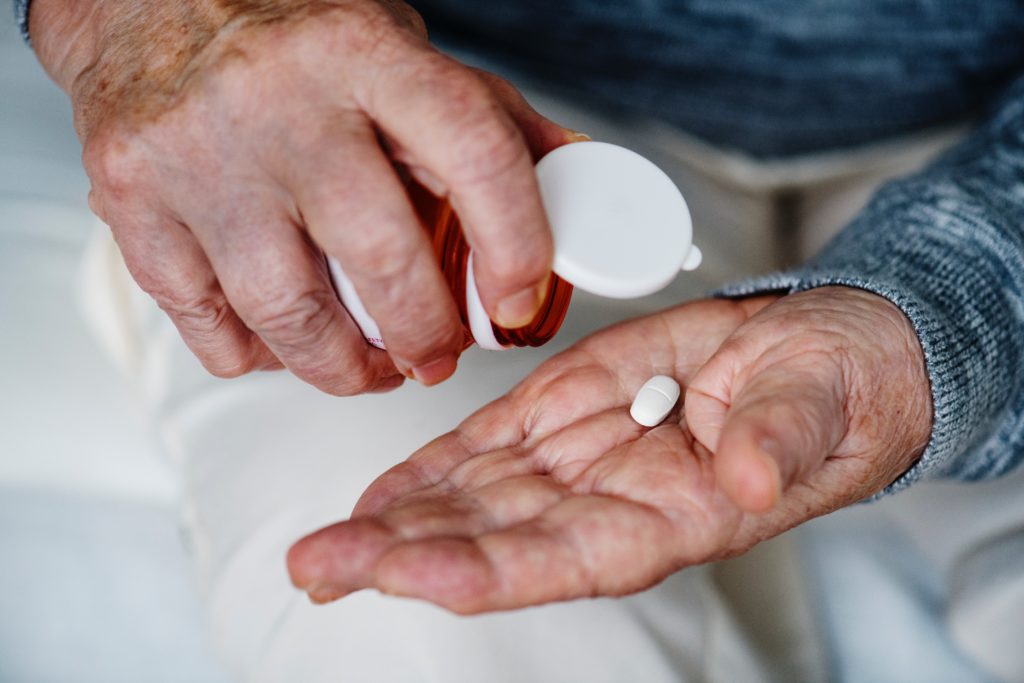What is a Benzodiazepine?
Benzodiazepines are a prescription drug sedative used to treat a variety of conditions. They are classified as Schedule IV in the Controlled Substances Act. Some of the conditions that Benzodiazepine can treat include:
- Insomnia
- Anxiety
- Seizures
- Muscle tension
- Panic disorders
When used as prescribed under the supervision of a medical professional, Benzodiazepines can be very useful in the treatment of these disorders. Many people are able to live healthy, happy lives while taking Benzodiazepines to curb the symptoms of their various conditions. However, because of the addictive nature of Benzodiazepines, a well-intentioned user can quickly escalate into someone suffering from a full blown drug addiction.
You may be more familiar with Benzodiazepines’ various brand names, which include:
- Ativan
- Xanax
- Librium
- Klonopin
- Valium
- Halcion
- Niravam
- Restoril
- Tranxene
- Alprazolam
Are Benzodiazepines Addictive?
Benzodiazepines work on the neurotransmitter GABA (gamma-amino butyric acid) by calming the nerve impulses. This helps to calm anxiety and other panic disorders, as well as relax the user. Benzodiazepines also surge your dopamine levels, which floods your brain with the feel-good neurotransmitter. This sudden and strong wave of pleasure and euphoria can become irresistible to its users.
The more you take benzodiazepines, the more tolerance you will build. This is a hallmark of addiction; needing more and more in order to achieve a high and going through great lengths to obtain it.
Physical symptoms that you may be addicted to Benzodiazepines include:
- Muscle weakness
- Blurry vision
- Drowsiness
- Dizziness
- Confusion
- Slurred speech
Behavioral symptoms that you may be addicted to Benzodiazepines include:
- Poor judgment
- Taking more than the prescribed dosage
- Having multiple doctors in order to receive multiple prescriptions
- Filling prescriptions at multiple pharmacies
- Asking friends, family, colleagues, and/or classmates for their benzodiazepine pills
- Stealing benzodiazepine pills
- Wanting to cut back, but not being able to
- Mood swings
- Risk-taking behaviors, such as driving after taking benzodiazepines or breaking the law
- Combining benzodiazepines with alcohol or other drugs
- Purchasing benzodiazepine pills from the black market
Statistics
While Benzodiazepines can be a useful tool for treating various anxiety and panic disorders, there are many dangers and alarming statistics to be aware of.
- Studies have shown a nearly eightfold rise in mortality rates from overdoses involving benzodiazepines, from 0.6 in 100,000 people in 1999 to 4.4 in 2016.
- According to a recent report by the U.S. Centers for Disease Control and Prevention, the overdose mortality rate involving benzodiazepines for women between the ages of 30 and 64 has increased by 830 percent between 1996 and 2017.
- From 1998 to 2008, addiction treatment admissions involving benzo abuse nearly tripled
More than 30 percent of overdoses involving opioids also involve benzodiazepines
Rise in Prescriptions
According to NPR, the percentage of outpatient medical visits that led to a benzodiazepine prescription doubled from 2003 to 2015. This means that primary care doctors are prescribing Benzodiazepines more and more to their patients without the patient even needed to see a specialist. While benzodiazepines are mostly prescribed for anxiety, insomnia and seizures, the study found that the biggest rise in prescriptions during this time period was for back pain and other types of chronic pain. Benzodiazepines can help muscle tension issues due to the tranquilizers in its makeup, but is not recommended for long-term pain management use.
Benzodiazepines are typically best used in the short-term in order to avoid complications such as dependence, addiction and even death. However, from 2005 to 2015 continuing prescriptions increased by 50 percent. This means that people are taking benzodiazepines much longer than needed, which fuels dependency issues and abuse of the medication.
There are many reasons for the hike in prescriptions, according to Anna Lembke, an associate professor of psychiatry and medical director of addiction medicine at Stanford University School of Medicine. One includes the fact that primary care physicians have not received the training that they need to prescribe medications that have such high risk for addiction or overdose, coupled with the burden of care on primary care physicians who are given little time or resources to handle a high volume of pain patients with complex conditions. These two issues together have helped America get into the opioid epidemic, along with other financial incentives for physicians.
About Cliffside Malibu
If you are taking Benzodiazepine for an anxiety disorder, panic disorder or chronic pain and feel as if you may be becoming dependent, it is time to seek help. You can learn to overcome your anxiety and panic disorders without the use of harmful, addictive prescription medications that could potentially lead to death.
Each patient is then matched with one of these five stages of the Transtheoretical Model: Precontemplation, Contemplation, Preparation, Action and Maintenance. An individualized treatment plan is created based on their current stage of change. This process is in place to ensure that all our patients receive the best treatment path possible for their own specific need. Our goal is to move individuals through their treatment by assessing their readiness for change and formulating stage-matched interventions in order to move them through their respective stage.
It is the policy of Cliffside Malibu to ensure that all individuals who present with chemical dependency issues are assessed for the appropriate level of care. We strive to provide continuum of care including medically supervised detox, residential treatment, day treatment and outpatient services. Services are provided to individuals with a primary diagnosis of substance abuse and/or alcohol addiction. Individuals seeking treatment are assessed by qualified staff to ensure program criteria are met and that each individual admitted is placed in the appropriate level of care for treatment. The program is designed and structured for individuals who are in need of a supportive environment in order to maintain Sobriety.
For more information on Cliffside Malibu, visit cliffsidemalibu.com
